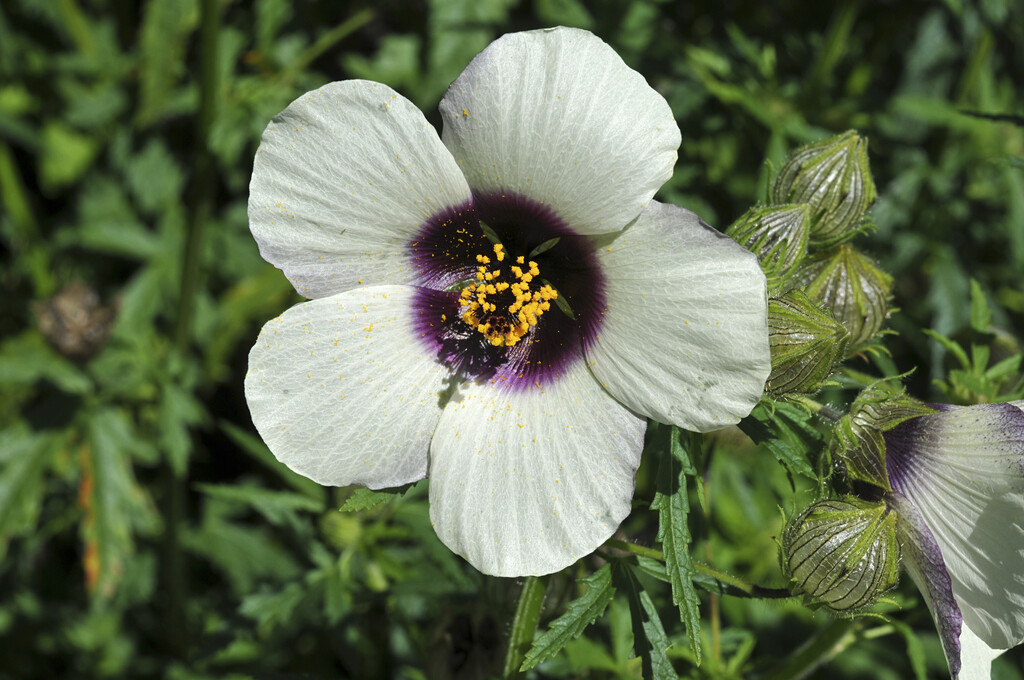Hibiscus cannabinus
Ambari hemp
Fast-growing, upright, almost unbranched annual or short-lived, woody-based perennial about 3.5m tall, with fine, spiny-stems bearing long-stalked dark green leaves, the upper leaves palmately lobed and those lower down on the stem unlobed. Funnel-shaped, pale yellow, occasionally purple-red flowers with crimson-red centres, produced singley or in racemes from summer to autumn
Size
Ultimate height
2.5–4 metresTime to ultimate height
2–5 yearsUltimate spread
1–1.5 metresGrowing conditions
Moisture
Well–drainedpH
Acid, NeutralColour & scent
| Stem | Flower | Foliage | Fruit | |
| Spring | Green | |||
|---|---|---|---|---|
| Summer | Yellow Purple Red | Green | ||
| Autumn | Yellow Purple Red | Green | ||
| Winter |
Position
- Full sun
Aspect
South–facing or West–facing
Exposure
Sheltered Hardiness
H2Botanical details
- Family
- Malvaceae
- Native to GB / Ireland
- No
- Foliage
- Deciduous
- Habit
- Columnar upright
- Genus
Hibiscus can be deciduous or evergreen shrubs, trees, annuals or perennials, with simple or palmately lobed leaves and large, funnel-shaped flowers over a long flowering season
- Name status
Correct
How to grow
Cultivation
May be grown outdoors in mild, frost-free areas, or in large containers that can be moved indoors over winter. Outdoors, grow in neutral to slightly acidic soil in full sun, and mulch well over winter. Hibiscus need long, hot summers to flower well. Indoors, grow in bright filtered light with moderate humidity and good ventilation
Propagation
Propagate by seed (sown indoors) in spring, or propagate by division in spring
Suggested planting locations and garden types
- Coastal
- Cottage and informal garden
- Patio and container plants
- Sub-tropical
- Bedding
- Conservatory and greenhouse
- Flower borders and beds
Pruning
Pruning group 1 if necessary, no pruning need if grown as an annual
Pests
May be susceptible to aphids, scale insects, mealybugs and glasshouse whitefly when grown under glass
Diseases
May be susceptible to honey fungus (rarely) and powdery mildews
Get involved
The RHS is the UK’s gardening charity, helping people and plants to grow - nurturing a healthier, happier world, one person and one plant at a time.
